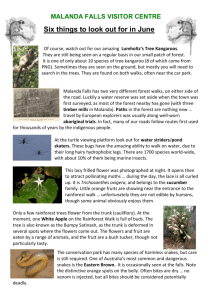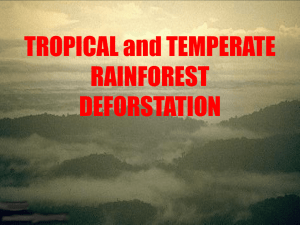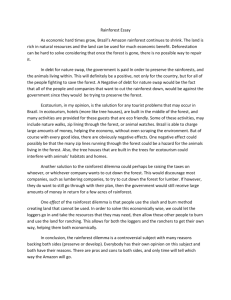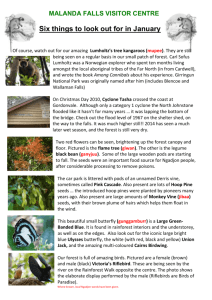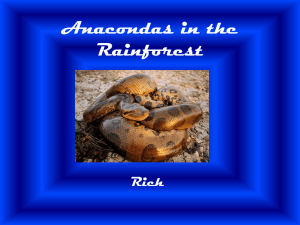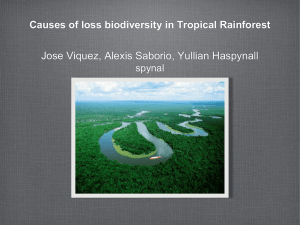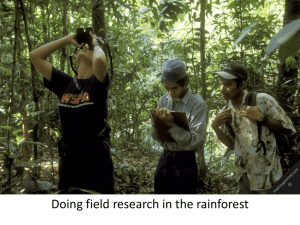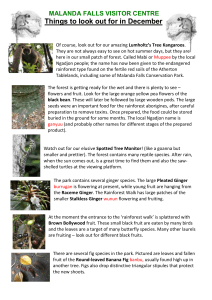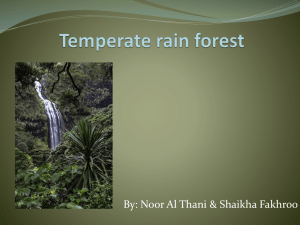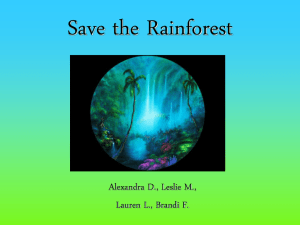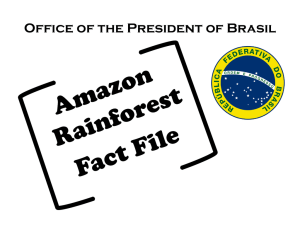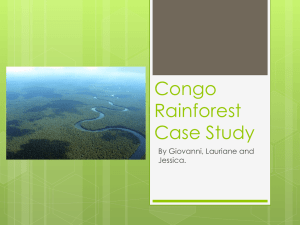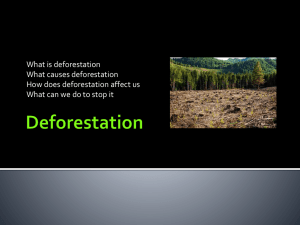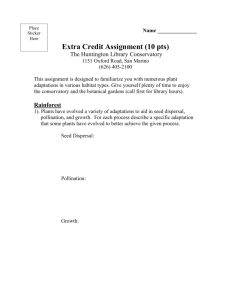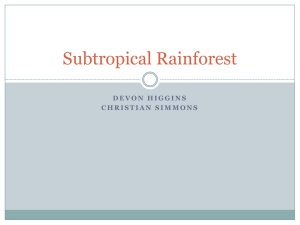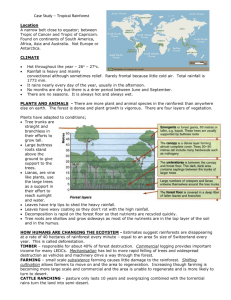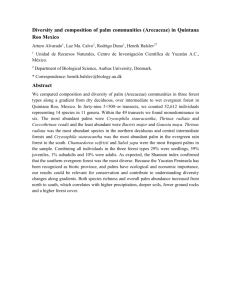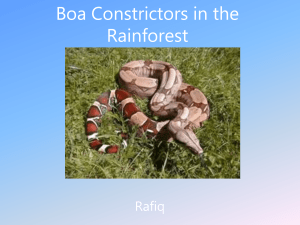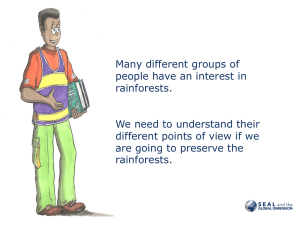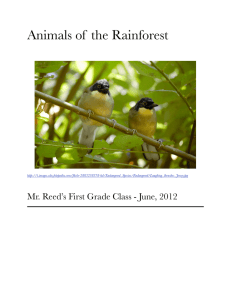The Tropical Rainforest
advertisement
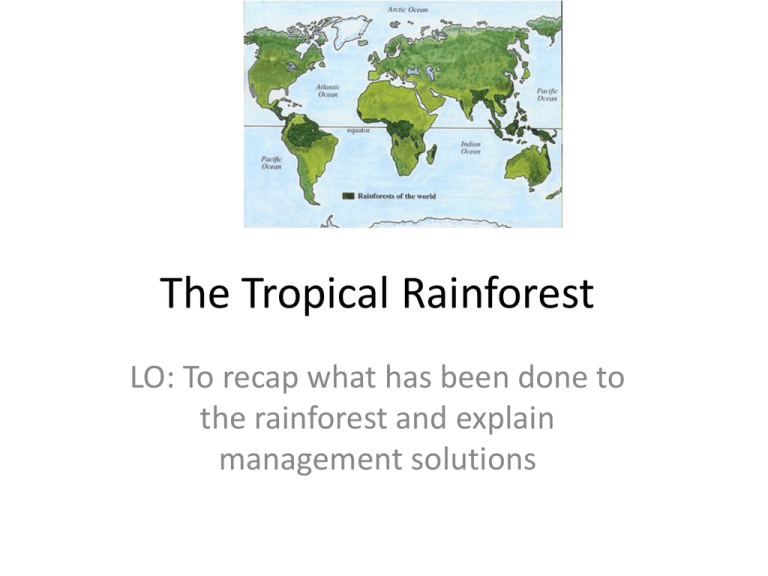
The Tropical Rainforest LO: To recap what has been done to the rainforest and explain management solutions The tropical rainforest in Malaysia • Over 70% of the Malay peninsular is still covered in trees- includes rainforests and tree crops such as palm oil and rubber • However estimates suggest that the rainforest area could decrease by more than half (down to 25%) by 2020 at present rates of destruction The Malaysian Rainforest- use by indegenous tribes For centuries tribes such as the Penan have inhabited the Borneo Rainforest. They hunt for animals and clear small patches of forests to grow crops- slash and burn. The clearing is small and after 2 or 3 years it is abandoned and the forest again develops. The Indians do no long term damage to the forest. Other uses of the rainforest • During colonial times extensive areas of forest were cleared and replanted with rubber treesthe plantations were owned by large TNCs e.g. Dunlop • Since them, due to a large increase in demand for palm oil areas of lowland forest have been converted to palm oil plantations- Malaysia is now the worlds major importer of palm oil. Development and Deforestation • Before the 1970s there was little deforestation in Malaysia- most of the population lived in small, self contained villages and there was little urban or industrial growth • Malaysia has now become an NIC and the government is working towards becoming ‘fully developed’ by 2020-New land is needed to house and feed the growing population of Malaysia Why is sustainable development of the TRF a good idea? Sustainable forestry in Malaysia • Ensuring logging companies only use selective cutting methods- e.g. only a certain number of tree per hectare. Solutions continued • Restricting the use of bulldozers • Increasing the number of National parks • Helilogging- removing wood via helicopters Complete question 4e page 242 Wider World Carbon credits LIC’s can set aside some of their forest and receive carbon credits. Industrialised countries can then buy these credits off the country and in this way the developing country earns money from its forest. The largest carbon credit project in the world is in Bolivia. The project is based in the Noel Kempff National Park which is an area of 1.5m hectares and has been an UNESCO World Heritage site since 2000. Bolivia has received £25m by selling the carbon credits of this area. The money has gone straight to the communities who live in the areas as compensation. This means that they are no longer dependent upon logging and destroying the forest to farm to earn a living. Exam question time!!!! Explain the management initiatives used in rainforest areas where resources have been extracted. Use examples within your answer (6)

